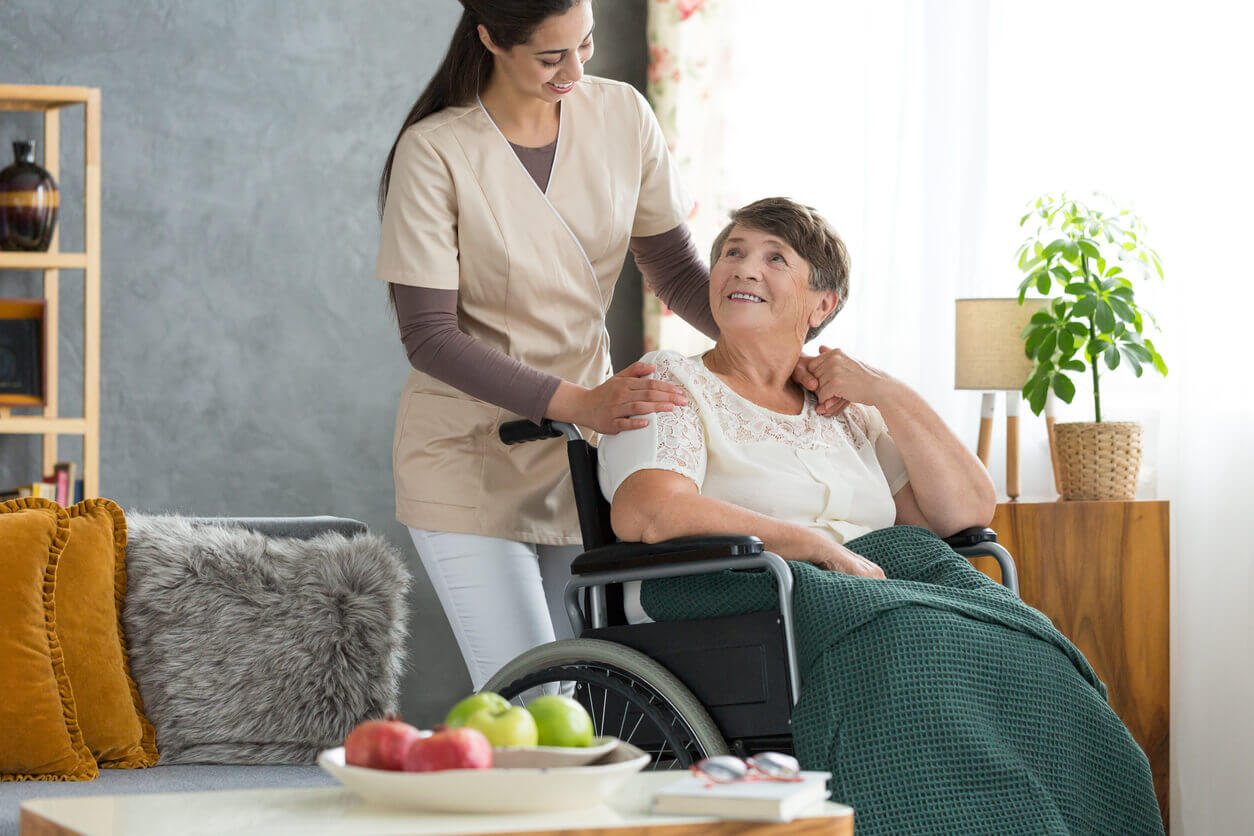
Taking care of a loved one who is terminally ill can be emotionally and physically draining for family caregivers. However, with the help of home hospice health care, families can get the support they need to provide quality care while also taking care of themselves.
Let’s explore how home hospice care providers support family caregivers in their important roles.
Understanding Home Hospice Health Care
Home hospice care is a service that provides comprehensive medical, emotional, and spiritual support to patients in the last stages of a terminal illness, aiming to help them live their last days with dignity and comfort. A crucial part of this care is the home hospice health aide, a trained professional who provides personal care and companionship to the patient.
In addition to home hospice health aides, the home hospice health care team consists of:
- Primary care provider
- Hospice physician
- Registered nurse (RN) case manager/LPN
- Social worker
- Bereavement counseling provider
- Volunteer services provider
- Spiritual care services provider
The Role of Family Caregivers in Home Hospice Care and How Home Hospice Care Providers Can Help Them
Family caregivers often serve as the primary caregivers for their loved ones in home hospice care. They play a critical role in providing emotional support, managing medications, assisting with daily activities, and coordinating care with the hospice team.
Emotional Support
One of the most important ways home hospice care providers support family caregivers is by providing emotional support. Dealing with the impending loss of a loved one can be overwhelming and having someone to talk to and lean on can make a huge difference.
Home hospice care providers are trained to provide compassionate care to patients and their families. They offer a listening ear, encouragement, and a shoulder to cry on during this difficult time.
Respite Care
Family caregivers often find themselves juggling multiple responsibilities while caring for a terminally ill loved one. This can lead to burnout and exhaustion if they do not take breaks to rest and recharge.
Home hospice care providers offer respite care services, allowing family caregivers to take some time off knowing their loved one is in good hands. This break is crucial for caregivers to maintain their health and well-being and continue providing quality care.
Assistance with Activities of Daily Living
As a loved one’s health declines, they may require assistance with daily tasks such as bathing, dressing, and eating. Home hospice care aides are trained to provide this hands-on assistance while respecting the dignity and independence of the patient.
Home health aides take over caregiving responsibilities, allowing family caregivers to focus on spending quality time with their loved ones instead of being overwhelmed by the physical demands of caregiving.
Education and Training
Home hospice care providers also provide valuable education and training to family caregivers on caring for their loved ones at home. They teach essential skills such as proper lifting techniques, medication management, wound care, and more.
Home hospice care providers empower family caregivers with knowledge and resources to help them feel more confident in their caregiving role.
Bereavement Counseling
The loss of a loved one is an intensely personal and often devastating experience. Home hospice care providers such as bereavement counselors recognize the importance of providing support not just through the patient’s end-of-life process but also after the loss has occurred.
Bereavement counseling services offered by home hospice care provide a safe space for family caregivers to process their grief, confront their feelings, and begin the healing process. These sessions, which can be conducted individually or in groups, aim to guide those left behind through their grief, offering coping strategies and support systems to help them adjust to life without their loved ones.
It’s a crucial aspect of aftercare that acknowledges the long-lasting impact of grief and the need for ongoing support.
Home Hospice Care in The State of Pennsylvania
Home hospice health care is not just about providing care to the patients but also offering comprehensive support to family caregivers. From emotional support and education to respite care and bereavement counseling, these services aim to ease the burden on caregivers and help them provide the best possible care to their loved ones.
If you are looking for high-quality home hospice care services, look no further. At Advantage Home Health & Hospice Care, we deliver compassionate hospice care to people living in the State of Pennsylvania. Our home hospice care aides and other home hospice care providers honor the wishes of people in the last stages of their lives and support them and their caregivers.
To learn more about our home hospice care services, contact us today or fill out our online appointment request form. We look forward to serving you!


